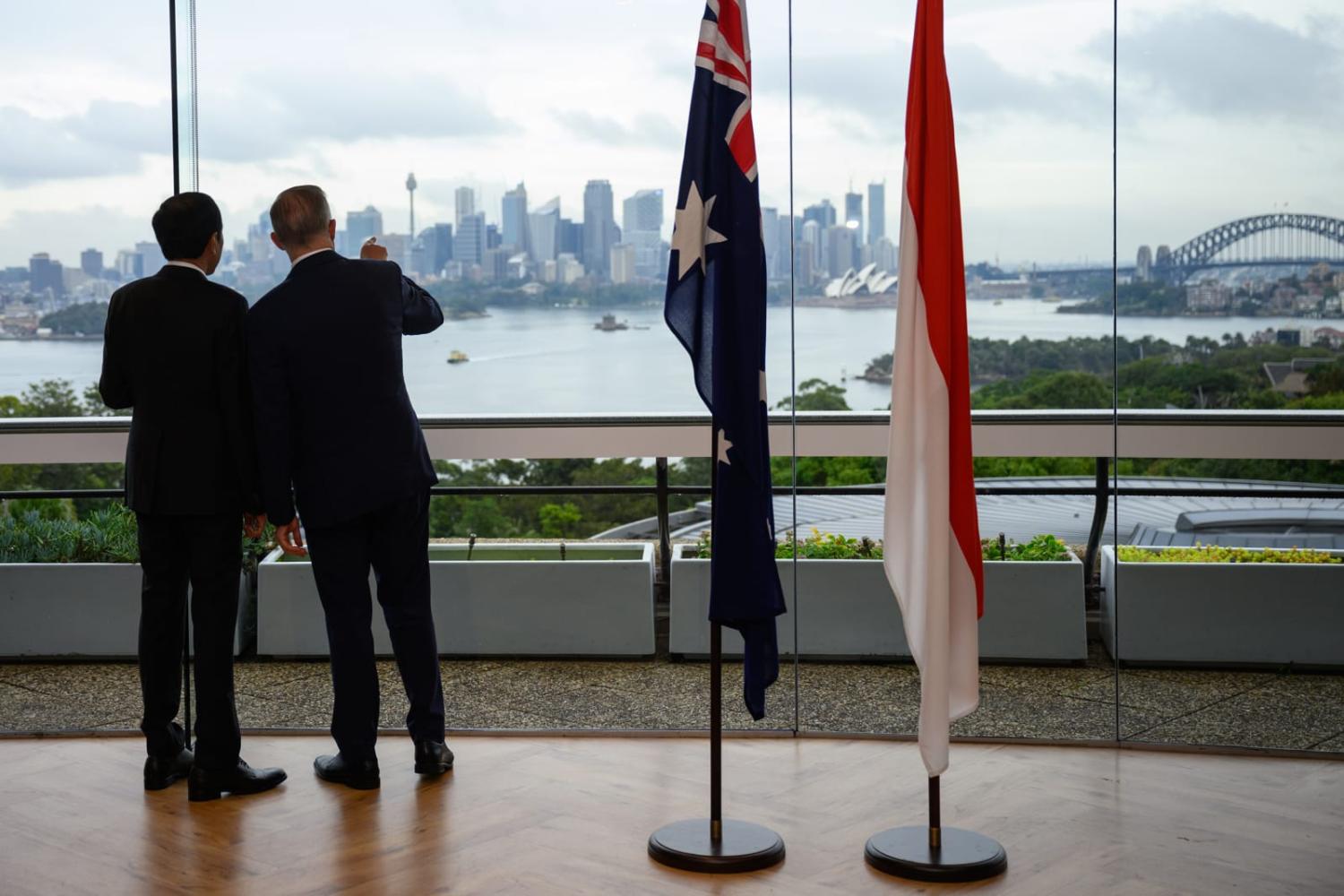During Indonesian President Joko Widodo’s visit to Australia this week, all eyes have been on government efforts to improve economic and security ties. Jokowi, as the President is known, sees Australia as a partner in his drive for Indonesia to move up the economic value chain and become an electric vehicle hub, while Albanese’s priority will be ensuring Jakarta is, at the very least, not opposed to Canberra’s efforts with the United States to balance and deter China’s growing military power.
An essential ingredient for any strong bilateral relationship is practical cooperation underpinned by interests. So, the focus on economic, climate and security cooperation is as it should be – even if there are differences in how each country view US-China tensions.
Governments also set the tone, and there has been no shortage of warmth between leaders and senior ministers.
But despite the flourishing bromance between Albanese and Jokowi, an uncomfortable question has long nagged from the background of the Australia-Indonesia relationship.
Do Australians and Indonesians trust each other?
Over the course of 19 years, the Lowy Institute Poll has shown Australian attitudes towards Indonesia have been – at best – lukewarm. And at worst, they betray a lurking suspicion.
In the 2023 Lowy Institute Poll, Australians’ warmth towards Indonesia registered at a tepid 57° on the thermometer used to measure feelings toward other countries.
A bare majority of Australians (51%) trust Indonesia to act responsibly in the world, while only 34% of Australians had some level of confidence in Jokowi to “do the right thing in world affairs” – ten points below trust in Indian Prime Minister Narendra Modi (44%).
Only 12% of Australians nominated Indonesia as Australia’s “best friend in Asia” – fewer than Japan, India and Singapore.
While there have been fluctuations over time, generally, Indonesia has remained stuck at the middle to lower end of Australian attitudes towards other countries. And when it comes to understanding Indonesia, although a growing number of Australians agree that Indonesia is a democracy (48%), this only just surpassed the number who disagree (47%) in 2022.
These figures are strikingly low considering Indonesia’s weight, trajectory, and proximity to Australia and its interests.
And the wariness cuts both ways. In 2021, when the Lowy Institute last conducted a nationally representative survey of Indonesians, only 55% of Indonesians said they trust Australia. This was a 20-point drop from 2011 levels of trust in Australia.
A minority of Indonesians (38%) expressed confidence in then prime minister Scott Morrison, and around one third of Indonesians (34%) saw Australia posing a threat to Indonesia.
Australia and Indonesia have had no shortage of relationship problems over the years – ranging from Australian live export bans, Indonesia’s use of the death penalty, revelations of phone tapping, and differences on people smuggling, to name a few. And each of these irritants has not only derailed diplomatic relations at the time – they have had a lasting effect on undermining public trust.
Careful stewardship and personal bonds between leaders in both governments will be important in managing differences in the future, as will sustained, consistent engagement on shared interests.
But building trust and confidence will also require deepening cultural familiarity and understanding at the people level.
Expected announcements from Jokowi’s visit on visa processing, green technology and business engagement are steps in the right direction. Re-investing in Australian educational ties with Southeast Asia, including scholarship opportunities for Indonesians, would also yield benefits for both countries, as it has in the past.

